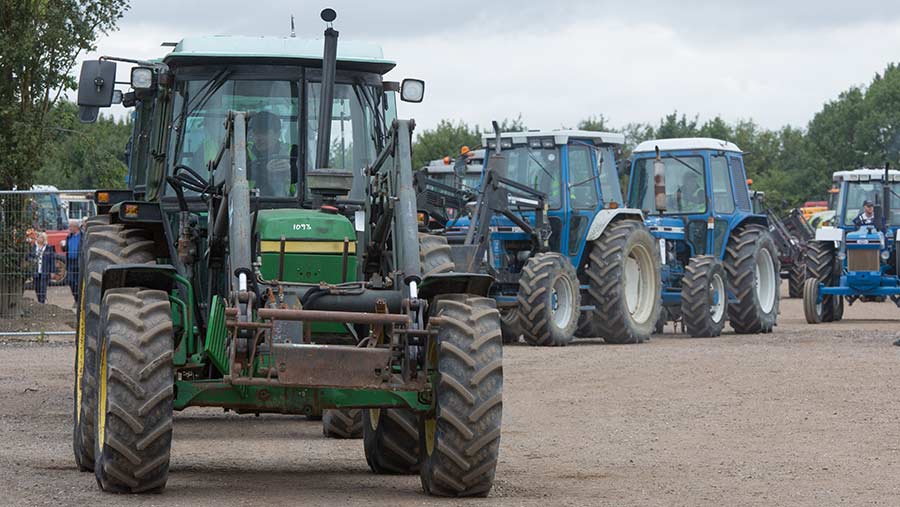Legal tips for buying and selling second-hand machinery
 © Tim Scrivener
© Tim Scrivener Buyers and sellers of second-hand machinery face numerous potential legal, transactional and safety pitfalls. Alex Forster of Roythornes Solicitors answers the key questions:
What Health & Safety Executive guidelines are there on this?
The HSE states if you supply, whether for payment or not, second-hand equipment for use at work you must take steps to ensure it will be safe and without risks to health at all times when being set, used, cleaned or maintained by a person at work, as far as is reasonably practicable.
What are the health and safety rules on instructions for using the equipment?
You must provide adequate information about using the equipment, normally this will be a copy of the original equipment’s instructions in English.
This duty applies to importers, distributors and suppliers of equipment for use at work, including one-off sales by users and anyone refurbishing equipment for use at work.
See also: Legal and management questions answered by Farmers Weekly’s Business Clinic experts
What if the goods are not as described?
Whether or not you are purchasing the goods as a consumer or a business, the goods must be as described. If they are not, then the seller will be in breach of contract.
What if the goods do not work?
Whether you are purchasing the goods as a consumer or a business, the goods must be of satisfactory quality and/or fit for purpose. If they are not, then the seller will be in breach of contract.
What if you inspect the goods beforehand?
However, if you inspect the goods before purchasing you will not be able to rely on the term above – that the goods will be of satisfactory quality – regarding any factor that the inspection ought to reveal.
What if the goods were bought at auction?
The rights afforded depend on the type of auction and the terms and conditions of the specific auction house.
Generally, if a buyer purchases goods in person at an auction, then it is assumed that the buyer has inspected said goods and has determined that the goods are of satisfactory quality. However, the auctioneer still cannot mis-describe the goods.
What redress can a buyer of faulty goods obtain from a seller?
If the goods are not as described, of satisfactory quality or fit for purpose then the buyer will generally have the right to reject the goods (depending on when the seller is informed of the fault) and/or for damages for the cost of the repair.
The remedies available depend on whether the buyer is a consumer or acting in the course of business, and whether the seller is a retailer or private trader.
What happens if you are the seller and you have delivered the goods, but the buyer has not paid?
First, the seller should contact the buyer and request payment. If payment is not forthcoming, then:
- It would be beneficial if, when selling the goods, the seller had inserted a Retention of Title clause in to the relevant contract. A Retention of Title clause is one indicating that (i) title in the goods remains with the seller until the buyer has paid and (ii) the seller has a licence to enter the buyer’s premises and repossess the goods. If there is Retention of Title clause in the contract then the seller can simply attend the buyer’s premises and take the goods away.
- If there is no Retention of Title clause, then title (and risk) in the goods usually passes on delivery of the goods. Accordingly, the only recourse would be to bring a claim against the buyer for the purchase price.
When should payment be made?
Payment and delivery are usually concurrent events. Usually a seller will want payment prior to releasing the goods and a buyer will want to pay after the goods have been delivered. Ultimately the point of payment is for negotiation between the parties.
The seller’s right to sell – checking whether equipment is stolen or under finance
It is an implied term of the contract of sale that the seller has the legal right to sell the goods. If the goods are subject to finance or are stolen, then the seller will not usually have legal title in the goods.
If the goods are seized or repossessed, then the buyer may bring a claim against the seller for the entire purchase price.
Prior to purchasing, the buyer should undertake thorough checks to make sure that the goods are not stolen and/or are subject to finance . The buyer should always ask the seller for proof of their identity and all documentation relating to the goods.
A guarantee from the seller – what should be included?
When purchasing second-hand machinery it is usual for the seller to guarantee that if the machine breaks down within a set period after purchase, then the seller will, free of charge, provide all parts and labour required to repair said machinery.
In any event, the wording of a guarantee is subjective and subject to negotiation – the seller will (usually) want to give as little as possible and the buyer (usually) will want as much as possible.
Accordingly, prior to purchasing the goods, the buyer should (as an absolute minimum) ask for the guarantee to be sent to them in writing (for them to review) and, once agreed, signed by both parties.

